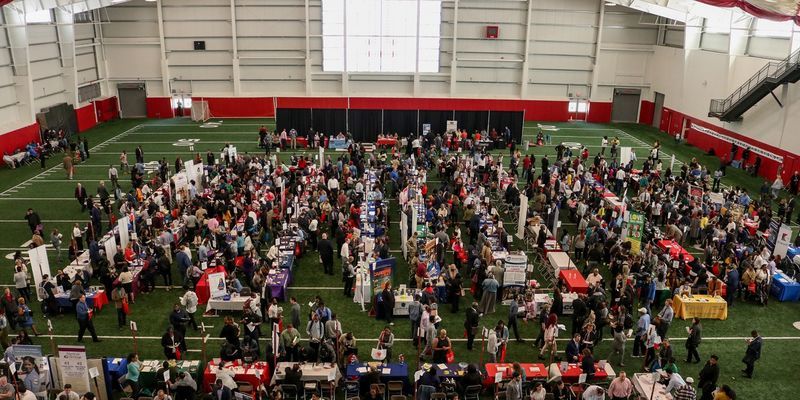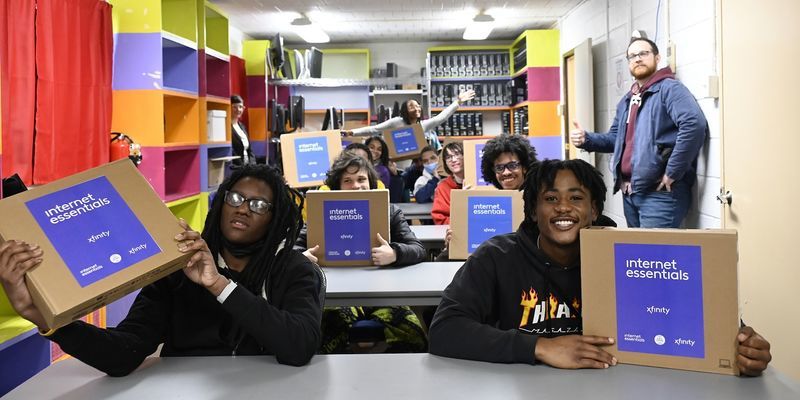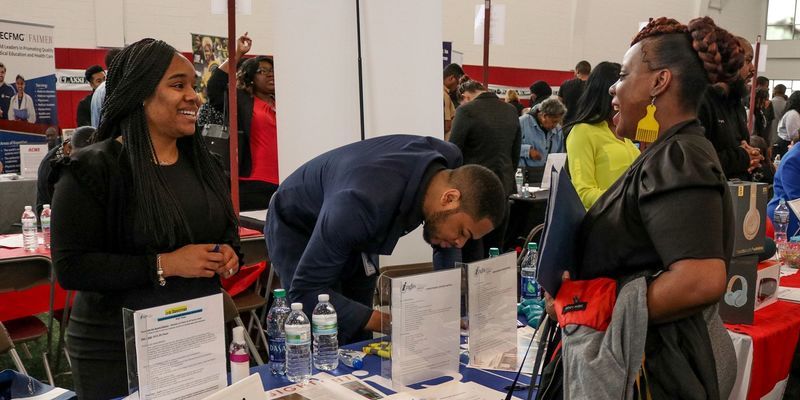Temple’s first annual reentry job fair provides hope for returning citizens
Temple University's first annual Reentry Job Fair and Resource Village provided services to formerly incarcerated people at the Howard Gittis Student Activity Center on Friday, April 19.

More than 300 attended Temple University’s first-ever Reentry Job Fair and Resource Village at the Howard Gittis Student Center on April 19. The job fair is designed to help formerly incarcerated citizens rejoin the workforce by connecting them with fair chance companies. Employers with a fair chance policy assess an applicant’s abilities before considering their criminal record.
The free event was hosted by Temple’s Lenfest North Philadelphia Workforce Initiative (LNPWI) and Temple’s Office of Community Affairs and Engagement and received support from the Pennsylvania Legislative Black Caucus, Pennsylvania Reentry Program, Radio One, Philadelphia’s District Attorney’s Office, Philadelphia Office of Reentry Partnerships and many other businesses that support reentry initiatives. Temple plans to make this a recurring annual event moving forward.
“Hundreds are welcomed to the wraparound services that various community agencies provided, and the employer roster of local companies were excited to tap into this unique talent pool of potential hires,” said Michael Robinson, director of community outreach and hiring of LNPWI.
“Providing a job fair that exclusively supports a reentry population helps reduce recidivism because research shows that when people are working, they have something to live for that is positive and transformative going on in their life.
“Reentry candidates tend to thrive once employed and equipped with certain services and support documentation,” he added.
A total of 25 employers and 26 community agencies were present at the event, and more than 50 reentry attendees were hired on site.
Herbert Austin was one of them.
“The Forman Mills employer was impressed with the supervisor experience on my résumé and hired me on the spot. This was perfect timing, and it could be a life-changing opportunity,” said Austin, who secured a job as a supervisor at a Forman Mills location.
“Making a mistake doesn’t define the person you are, so as someone who grew up in the Philadelphia community it means a lot that Temple has this event to support returning citizens looking for job opportunities,” he added. “It gives you another chance to make a difference to secure your family and responsibilities. This job fair gives you hope.”
Elected officials that supported the event included Senator Sharif Street; Court of Common Pleas Judge Stephanie Sawyer; and representatives Malcolm Kenyatta, Darisha Parker and Donna Bullock.
Sen. Street’s team arranged to have driver’s licenses and state identification issued on-site by the Pennsylvania Department of Transportation.
Rep. Bullock, who attended the reentry job fair, promoted it to many of her constituencies in Philadelphia through media releases, direct email blasts and social media posts. As the former chair of the Pennsylvania Legislative Black Caucus, she helped arrange for the organization to provide resources for the event.
“I am so excited to help get people to the job and connected so that we can put Pennsylvania to work and make sure everybody has an opportunity to provide for their families,” Bullock said about the reentry job fair in a video that she posted on her X (formerly known as Twitter) account. “We know work is key to prevent folks from going back; this is what second chances are all about and I am happy to be a part of it.”
Judge Sawyer, also in attendance, founded a groundbreaking restorative justice program called Resource-based Sentencing and Supervision, which links criminal court judges with the appropriate reentry resources—including education, employment and housing— to be utilized during sentencing.
“These are the things that we’re hoping to include in the repertoire of resources that we provide for defendants right in the courtroom,” Sawyer said in an interview with FOX 29. “There are unbelievable resources here to get a job like in healthcare and all kinds of vocational training like to become a CNA (certified nursing assistant) and opportunities to reimage your life so that you get a stake in society and do not need to reoffend.
“Desperate people can make bad decisions, so if judges provide an opportunity to reduce desperation, then we can reduce recidivism in a meaningful way and make our community safer,” she added.


